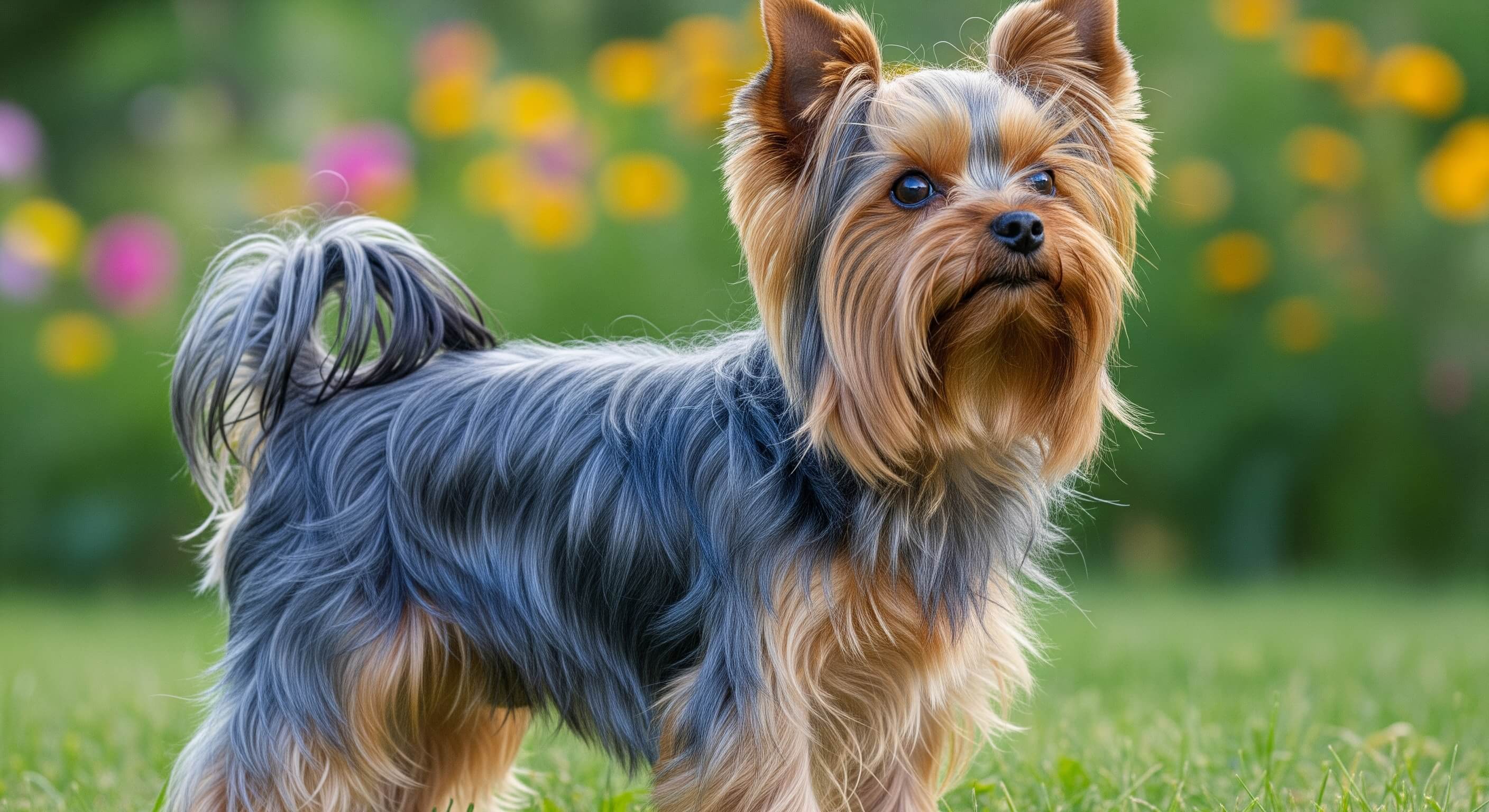Small in size but mighty in spirit, the Yorkshire Terrier (or Yorkie) is one of the most popular toy breeds around the world. With their adorable looks and spunky personality, these pint-sized companions are a favorite among city dwellers, families, and even seniors. But there's more to a Yorkie than just their silky coat and big brown eyes!
Temperament & Personality Traits
Yorkies are full of character. Known for their bold, confident, and loving nature, they can be both feisty watchdogs and affectionate lap dogs. They often behave like they're much larger than they are, and that terrier tenacity makes them loyal and sometimes a bit stubborn. Their unique personality traits make them stand out in any home.
Training Difficulty & Socialization Needs
Training a Yorkshire Terrier can be a delightful challenge. They're intelligent and eager to please but have a streak of independence that can make training difficult for first-timers. Consistency, patience, and positive reinforcement are key. Early socialization needs should not be ignored—exposing your Yorkie to new sights, sounds, and people early on can reduce fear-based barking and reactivity.
Exercise Requirements
Don’t be fooled by their size—Yorkies need regular playtime and walks to stay happy. Their exercise requirements are moderate, around 30 minutes to an hour per day. Indoor play, short walks, and mental enrichment (like treat puzzles) are perfect for this curious breed.
Grooming Needs
That luscious coat doesn’t take care of itself! Yorkies have fine, silky hair that resembles human hair more than dog fur. Their grooming needs are high: daily brushing, regular trims, and consistent ear and dental care are essential. For busy pet parents, a shorter puppy cut is often more manageable.
Health Issues & Lifespan
Like many small breeds, Yorkies are prone to a few health issues, including dental disease, luxating patellas, and tracheal collapse. With proper care, their lifespan can stretch between 13–16 years. Regular vet visits and a high-quality diet go a long way in keeping them thriving.
Diet Requirements
Yorkies benefit from high-protein, small-bite kibble tailored to toy breeds. Their diet requirements should support energy levels and joint health. Avoid foods with fillers, and be mindful of portion control to prevent weight gain, especially in older dogs.
- Recommended foods: Royal Canin Yorkshire Terrier, Wellness CORE Small Breed
- Treats: Freeze-dried liver, small dental chews
- Feeding frequency: 2–3 small meals a day
Apartment Living & Family Friendliness
Yorkies are ideal for apartment living due to their compact size and moderate activity needs. They're generally family-friendly and good with children, though supervision with very young kids is important due to their delicate build. They bond closely with their humans and may get anxious if left alone for long periods.
Shedding Level & Barking Tendency
Good news for allergy-prone folks—Yorkies have a low shedding level. However, they do require regular grooming to prevent tangles. On the flip side, their barking tendency is high. They’re quick to alert and may become vocal if not trained early.
Final Thoughts
The Yorkshire Terrier is more than just a pretty face. With the right care, training, and attention, they make fiercely loyal and delightful companions. If you’re ready for a dog with sass, smarts, and a silky coat, the Yorkie might just be your perfect match.
"My Yorkie, Bella, may be just 6 pounds—but she's got a 60-pound attitude. She's been my shadow for 7 years, and I wouldn’t trade her stubborn cuddles for anything." — Emma, Yorkie Parent
Frequently Asked Questions (FAQs)
1. What is the average lifespan of a Yorkshire Terrier?
2. Are Yorkies good for apartment living?
3. Do Yorkshire Terriers shed a lot?
4. Are Yorkies easy to train?
5. Do Yorkies bark a lot?
6. What are common health issues in Yorkies?

About SniffnTail
SniffnTail is your go-to destination for everything pets. From helpful advice, tips, and insights to thoughtfully selected products and resources, we’re here to support pet owners at every stage of their journey. Whether you're caring for a playful pup, a wise old cat, or anything in between, SniffnTail offers tools and knowledge to make pet parenting easier and more joyful.
Related Articles
 Dog Breeds • 7 min read
Dog Breeds • 7 min readCountries with the Most Extensive Bans on Dog Breeds: What Every Dog Lover Should Know
Discover which countries have the strictest bans on dog breeds, why these policies exist, and what dog parents should know to keep their pets safe and compliant.
 Dog Breeds • 5 mins Read
Dog Breeds • 5 mins ReadThe Beagle Breed: A Comprehensive Guide for Dog Lovers
Beagles are one of the most beloved dog breeds worldwide, admired for their charming personalities, energy levels, and unique sniffing instincts. Originating as scent hounds, these dogs are known for their excellent noses and affectionate nature, making them fantastic companions. In this article, we will explore the Beagle breed's energy levels, social needs, sniffing instincts, and provide some essential tips on caring for them. We will also cover common health issues like obesity and discuss their adaptability to life in Indian cities.
 Dog Breeds • 7 minutes
Dog Breeds • 7 minutesDachshund Dog Breed Guide: Personality, Care & Living Tips
Discover the unique personality traits, training needs, and care tips for Dachshunds. Learn all about their temperament, grooming needs, lifespan, and apartment suitability in this expert breed guide.

